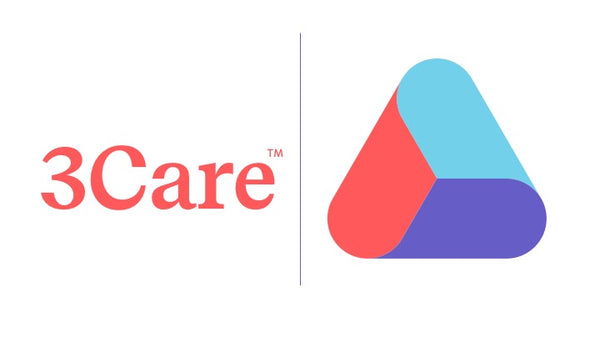COPENHAGEN, Denmark ― Probiotics may be effective in reducing core depressive symptoms in treatment-naive patients with a mild to moderate form of the disorder, results of a new pilot study suggest.
Investigators led by Caroline Wallace, PhD candidate, Queen's University, Kingston, Ontario, Canada, found that symptoms of mood, anhedonia, and sleep disturbance were significantly reduced with probiotic therapy after just 4 weeks, with results maintained at 8 weeks.
The findings are of particular interest because probiotics are not associated with any of the adverse effects of current antidepressant therapies and can be safely taken over long periods.
These results, the investigators note, "suggest that probiotics may be effective in alleviating depressive symptoms such as mood, anhedonia, and sleep quality."
Nevertheless, they acknowledge that the open-label nature of the study means that "these findings are susceptible to bias; thus, further blinded studies are warranted." To address these limitations plans for a larger randomized controlled trial are underway.
Results from preclinical and clinical studies suggest that probiotics improve symptoms of depression. The hypothesis is that the effects are mediated via the gut-brain axis by reducing inflammation and increasing serotonin levels.
To assess the efficacy of probiotics in treatment-naive patients with depression, the researchers carried out a pilot study using Probio'Stick, a probiotic supplement that combines two different strains known to act on the gut-brain axis ― Lactobacillus helveticus R0052and Bifidobacterium longum R0175.
The 8-week, single-arm, open-label intervention pilot study involved 10 treatment-naive patients with major depressive disorder who were experiencing a current episode of depression.
Molecular markers of inflammation were assessed and tryptophan and serotonin levels were determined. The patients underwent polysomnographic assessment to measure objective sleep.
Early Days
In her poster, Wallace presented data on five patients (mean age, 21.2 years). Four of the five patients were women.
On paired samples t-tests, mood symptoms on the Montgomery-Åsberg Depression Rating Scale improved significantly with probiotic therapy, from mean scores of 24.4 at baseline to 14.0 at week 4 and 11.0 at week 8.
There were also significant improvements in anhedonia scores, from a mean score of 36.2 on the Snaith-Hamilton Pleasure Scale at baseline to 29.4 at week 4 and 29.4 at week 8.
Similar findings were seen for sleep, with Pittsburgh Sleep Quality Index scores improving from 9.2 at baseline to 8.6 at week 4 and 6.2 at week 8. Although there was a trend for reduced anxiety with probiotic therapy on the State-Trait Anxiety Inventory, the results did not reach significance.
Next steps will be to confirm these findings in a double-blind, randomized, placebo-controlled trial of Probio'Stick. Patients in the treatment arm will be allowed to increase the dose if they have not responded. Patients in the placebo arm who do not respond will be allowed to switch to active treatment after 8 weeks.
The plan is to recruit a total of 108 patients. The clinical and molecular assessments will be expanded to capture a wider range of measures, and the investigators will also conduct a series of neuroimaging assessments.
Wallace told Medscape Medical News that although the use of probiotics as a therapeutic option for patients with depression is becoming more feasible, "we're definitely not there yet.
"This is a pilot study. The results are very preliminary. They do look really promising, but we really need to follow this up with double-blind, randomized controlled trials...because that's what's really needed to establish that there is an effect," she said.
"Up to 60% of patients discontinue their antidepressant use within the first 3 months, and one of the most common reasons for this is side effects," she said.
In contrast, probiotics "don't have the nausea, vomiting, headaches, suicidal ideation, sexual dysfunction, and you can take it long term. This one that we're working with is a daily supplement; you just take it once a day, and you could definitely take it long term."
New, Innovative Treatment Approach
Paolo Brambilla, MD, PhD, Department of Neurosciences and Mental Health, Fondazione IRCCS Ca' Granda Ospedale Maggiore Policlinico, University of Milan, Milan, Italy, who was chair of the poster tour, told Medscape Medical News that this a "new, innovative approach.
"It's a very well-designed study. These are preliminary findings, but promising. Of course, these are not inpatients or patients suffering from suicidality. They are outpatients with mild to moderate depression, but it looks like, after 8 weeks, there is an increase, particularly for mood," he said.
Dr Brambilla noted that the effect on the other core symptoms of depression was not as impressive.
"Of course, these findings need to be further expanded and confirmed by the full study, with the planned numbers for the placebo and the probiotic arms. But it's still very interesting," he added.
The research was conducted in association with Lallemand Health Solutions, which developed Probio'Stick, and the Ontario Brain Institute. No relevant financial relationships have been disclosed.
13th World Congress of Biological Psychiatry. Poster P-05-015, presented June 19, 2017.
